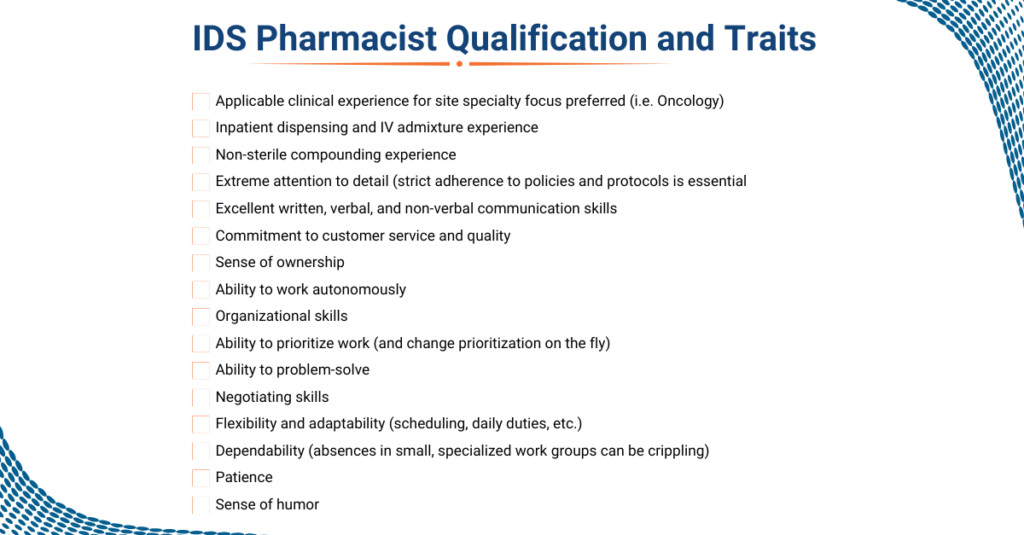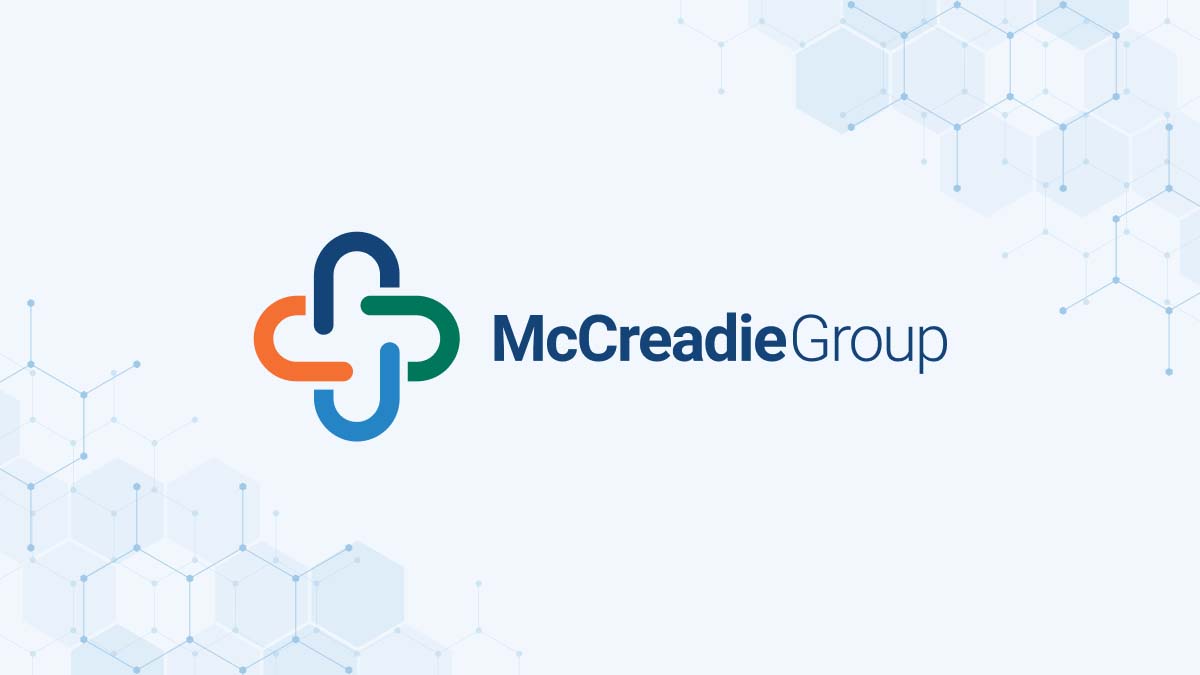The Role of an Investigational Drug Service (IDS) Pharmacist
I’m now nearly 25 years into my career as a pharmacist and I’ve traveled down a very different path than most of my counterparts. Being a pharmacist serving in roles including Critical Care Clinical Specialist, Pharmacy Director, and Corporate Director of Pharmacy Operations along with a stint as Chief Executive Officer taught me to approach the “What do you do?” conversation more strategically over the years. I suspect pharmacists reading this piece know exactly what I’m talking about.
So the conversation went…
Question: “What do you do?”
Answer: “I’m a pharmacist.”
Question: “Oh really? Do you work at [insert chain store name(s)] or [insert grocery name(s)]?”
Answer: “No, I work in a hospital.”
Question: “Oh, there are pharmacists in hospitals.”
…and on things went with varying degrees of detail provided depending on how much time and energy I wanted to spend further educating the person whom I’d met.
I am happy to report that much of the general public has become aware that pharmacists work in hospital settings over the last several years. The inclusion of pharmacists on care teams along with the emphasis on patient education and medication reconciliation has helped immensely. However, I still received puzzled looks from nearly everyone I told that I was a research or investigational drug service (IDS) pharmacist during my last tenure at a large academic medical center. Over time my response transitioned to “I do drug research” when I was short on time. However, I did take the opportunity to tell individuals about a day in the life of an IDS Pharmacist on occasion. My intent here is to enlighten others about the role.
Scope of IDS Pharmacist Duties Varies with Practice Settings
While many core functions differ very little across all research pharmacies, the menu of provided services can vary greatly depending on the practice setting. Demographic elements such as academic medical center affiliation, an array of specialty service lines, and study volume play a role in determining both pharmacist and pharmacy technician staffing levels as well as the level of staff expertise needed.
Some sites require only provision of basic inventory, dispensing, and accountability services along with the required interaction with sponsor, CRO, and/or IRT organizations for study setup and monitoring. It is not uncommon for small sites requiring limited services to assign these duties to a pharmacist as a secondary responsibility. A common practice is giving a practicing clinical pharmacist with an interest in research this “part-time” IDS job. As you can imagine it is difficult to give the level of attention needed to an “other duties as required” job. The arrangement is not unlike the common staff/clinical pharmacist jobs where occupants of the positions often have difficulty escaping the staffing duties. I myself have worked in such a dual role setting as Director of Pharmacy and Research Pharmacist and I considered the studies a nuisance as participant enrollment and visits always seemed to occur at inopportune times.
Larger academic medical centers conducting hundreds of studies simultaneously generally require a dedicated IDS team. Research is a key foundation of these organizations and IDS Pharmacists are often pulled in multiple directions due to their unique knowledge of pharmaceuticals, compounding, and regulations. In these settings it is not uncommon for investigators to rely on IDS Pharmacists for input on protocol writing, blinding plans, coordinating center activities, and sourcing of study products. They may also be called upon to develop product formulation documents, assist with drafting FDA Investigational New Drug (IND) application documents, and serving on organizational committees such as the Institutional Review Board.
I’ve presented to small and large operation extremes of pharmacy research settings. There is, of course, a middle ground as well. The models for the provision of research pharmacy services for sites with moderate study volumes (i.e. 25-50 active studies) are predictably skewed. Some of these sites may have dedicated staff members and work areas while others do not. While the work is demanding at any level, this awkward small to medium service size can be especially challenging for research pharmacists to navigate.
Regardless of study numbers, a recurring theme across research pharmacy practice settings exists. Most research pharmacy employees would consider their staffing levels too low and their work areas too cramped. Staffing needs are hard to justify because the traditional hospital pharmacy benchmarking volume indicators don’t fit the research arena. Comparing traditional inpatient dose or order numbers to research drug metrics is like comparing apples to lab generated, genetically mutated investigational fruits. Workspace seems to be at a premium in any healthcare setting. The large volumes of study drug for multiple studies stored on shelves or in carousels along with mounds of study binders, coolers, and other ancillary supplies often makes IDS services feel like an unwelcome and needy tenant.
Qualifications and Desirable Traits for Research Pharmacists
After reading the previous paragraphs, I’m sure you can piece together some key qualifications and character traits needed for research pharmacists to successfully take on the challenges of the job. While some apply to almost any pharmacist, others are particularly useful in the IDS arena. For example, let’s examine communication. Any job description includes “communication” as a key skill with the usual qualifier stated as “excellent” or at least some superlative. It’s fairly common knowledge that most pharmacists are introverts… I am as well. However, research pharmacists have to be able to communicate with a vast array of individuals ranging from internal study personnel to international sponsor teams. Difficulty finding the correct person with whom to speak regarding a particular issue is often problematic as well. The result is often communication that is very technical, disjointed, and sometimes accompanied by language barriers. Many potential employees might find these issues extremely frustrating and uncomfortable. Selecting candidates that can handle or adapt the unique characteristics of the position greatly increases chances for a successful tenure. I’ve provided my personal checklist used in interviews below.

